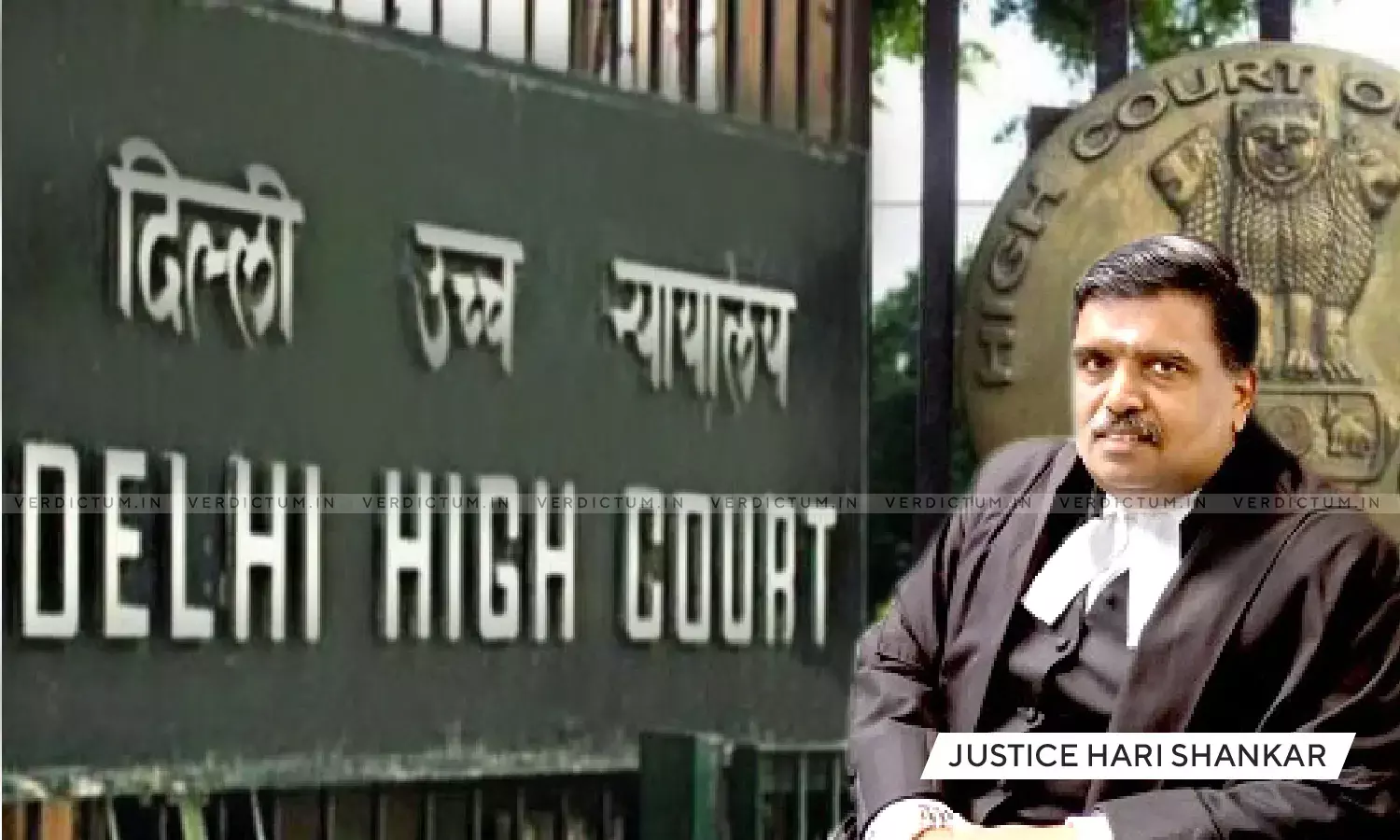Appointment Of Arbitrator Doesn’t Become Unilateral Merely Because Consent Of Non-Signatory Was Not Taken: Delhi High Court
The Delhi High Court clarified that the appointment of an Arbitrator does not become unilateral merely because the consent of the non-signatory was not taken.
The Court was deciding a petition filed by Yves Saint Laurent (YSL), a leading fashion designer house headquartered in Paris.
A Single Bench of Justice C. Hari Shankar observed, “The petitioner is, therefore, not correct in his submission that as the petitioner’s consent was not taken while appointing the learned arbitrator, the appointment was bad in law. Expressed otherwise, the appointment of the learned arbitrator does not become unilateral because the petitioner’s consent was not taken. If the petitioner could legitimately have been co-opted in the arbitration, despite being a non-signatory, its consent was not required prior thereto. If, on the other hand, the petitioner was illegally or irregularly made a party in the arbitration, the sequitur would be that the petitioner would be entitled to deletion from the proceedings, and not that the Arbitrator was rendered de jure incapable of arbitrating on the dispute.”
Senior Advocate Akhil Sibal appeared on behalf of the petitioner while Advocate Gaurav Gupta appeared on behalf of the respondents.
Brief Facts -
The petitioner YSL entered into a Franchise Agreement (FA) with Beverly Luxury Brands Ltd. in April 2019 to open a boutique in Delhi. The FA did not contain any arbitration clause, and conferred exclusive jurisdiction on the Commercial Court at Paris to decide any dispute arising under. Brompton Lifestyle Brands Pvt. Ltd. (respondent) entered into a Sub-Franchise Agreement (SFA) with Beverly in July 2019. The SFA was executed, admittedly without the consent of the petitioner and the petitioner was not a signatory to it. The petitioner terminated the FA in August 2021 and subsequently, Beverly also terminated the same. In February 2022, Brompton addressed a notice to Beverly and the petitioner under Section 215 of the Arbitration and Conciliation Act 1996 (A&C Act), invoking an arbitration clause contained in the SFA and proposing to refer disputes, stated to have arisen between Brompton on the one hand and the petitioner and Beverly on the other, to arbitration.
YSL objected to its inclusion in the arbitration, claiming it had no privity of contract with Brompton and was unaware of the SFA. YSL requested Beverly to terminate the arbitration proceedings and delete YSL from the proceedings. The Arbitrator proceeded with the arbitration, and YSL was marked ex-parte after failing to participate a filed an application under Section 16 of A&C Act, challenging the jurisdiction of the Tribunal. It contended that it had not consented to the arbitration or the arbitrator's appointment. The Tribunal rejected YSL’s application and observed that YSL had delayed in raising its objections. Being aggrieved, it was before the High Court.
The High Court in view of the above facts, noted, “This petition does not, however, incorporate any prayer for deletion of the petitioner from the arbitral proceedings.”
The Court said that, if the consent of Brompton and Beverly, who were parties to the arbitration agreement, was not available, and the Arbitrator had entered on reference without consensus ad idem between Brompton and Beverly regarding his appointment, then his appointment might possibly have been liable to be characterized as unilateral.
“Whether Beverly’s consent to the appointment of the learned arbitrator was, or was not, granted is, however, not forthcoming from the record. To reiterate, it is not the petitioner’s case that Beverly’s consent was not taken before the learned arbitrator entered on reference”, it added.
The Court further noted that Beverly did consent to the arbitration of the dispute by the Arbitrator and therefore, his appointment cannot be treated as unilateral and, hence, it is void on that ground.
“That being so, the learned arbitrator cannot be treated as being de jure incapable of functioning as an arbitrator, so as to justify termination of his mandate under Section 14(2) read with Section 14(1)(a)”, it also said.
The Court observed that the inclusion, or exclusion, of parties in an arbitral proceeding does not impinge on the capability, or capacity, of the arbitrator to arbitrate on the dispute.
“The petitioner has not, therefore, been able to make out any case for termination of the mandate of the learned Arbitrator”, it concluded.
Accordingly, the High Court dismissed the petition.
Cause Title- Yves Saint Laurent v. Brompton Lifestyle Brands Private Limited & Anr. (Neutral Citation: 2024:DHC:7167)
Appearance:
Petitioner: Senior Advocate Akhil Sibal, Advocates Aseem Chaturvedi, Nirupam Lodha, Rashika Bajpai, Kingshuk Banerjee, Shivank Diddi, Arsh Alok, and Gautam Wadhwa.
Respondents: Advocates Gaurav Gupta, Nikhil Kohli, and Akshaya Ganpath.




